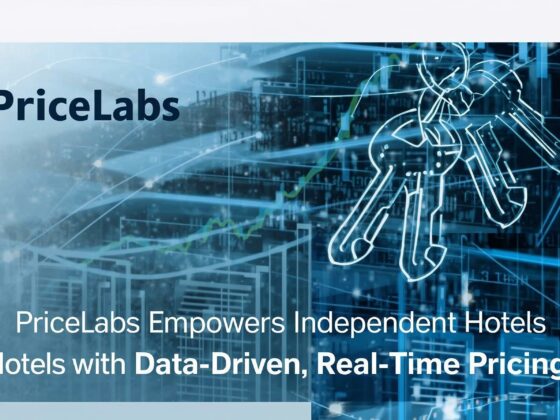
Independent and boutique hoteliers face unique challenges: limited resources, manual-heavy workflows, and fierce competition from larger chains.
But as revealed in our recent webinar with Hotel Madeira, the key to unlocking efficiency and profitability lies in embracing revenue management technology.
What’s revenue management technology?
A revenue management system (RMS) is a digital platform that uses real-time data and automation to help hotels set optimal rates, forecast demand, and maximize revenue.
For independent properties, it replaces error-prone spreadsheets with dynamic, data-driven decisions.
Why should independent hotels go digital?
Adopting an RMS can be transformative, not just for revenue leaders, but for the entire hotel team.
The benefits go far beyond pricing:
Efficiency and accuracy
Shifting from spreadsheets to an RMS eliminates manual errors and consolidates crucial data: prices, occupancy, segmentation, competitor insights, into one automated platform.
Real‑time insights
Manual processes can’t adapt to shifting demand. Digital tools provide dynamic pricing and forecasting in real time, ensuring hoteliers capture every opportunity.
Benefits beyond the revenue desk
It’s not just for the revenue leader. Front‑desk staff, operations, and sales teams all benefit from a single source of truth to access demand insights, optimized rate plans, and promotion strategies.
ROI from automation
You’ll see the biggest returns from automating rate recommendations, demand forecasting, and data analysis, freeing teams to focus on strategy and guest experience.
Hotel Madeira’s transformation
During the webinar, Gleb Gorbachev, IT Lead at Hotel Madeira, shared their journey:
| Before adopting an RMS | Implementation and gains | Impact |
|
The team relied heavily on manual pricing and segmented spreadsheets, leading to missed revenue opportunities and a time-consuming workflow. |
With the rollout of Duetto’s RMS, they introduced automation, gained accurate real-time forecasts, and embraced an Open Pricing methodology. The result? Increased ADR, improved efficiency, and better decision-making. |
They now run a streamlined operation with cross-departmental alignment and greater financial control, all while keeping the team in charge of the final decisions. |
6 practical ways for independent hotels in adopting an RMS
Making the leap from manual to digital doesn’t have to be daunting.
Here’s a proven framework based on Hotel Madeira’s journey to guide independent hotels like you through a smooth and successful RMS implementation.
| Step | Action | Impact |
|
1. Assess |
Identify pain points: manual processes, fragmented data. |
Know what to fix. |
|
Prioritize Open Pricing, automation, and ease of use. |
Ensure the right fit. |
|
|
2.1. Prioritize integrations |
Ensure the RMS integrates seamlessly with your tech stack. |
Well-connected, efficient system. |
|
3. Roll out in phases |
Start with the core modules (pricing, forecasting), and expand later. |
Minimize disruption. |
|
4. Train and involve all teams |
Involve your front‑desk, sales, and operations teams. |
Drive adoption and collaboration. |
|
5. Monitor and optimize |
Use reports to refine segmentation and pricing. |
Maximize ROI. |
Stay in full control with a digital advantage
For independent hoteliers, RMS technology isn’t a luxury, it’s a necessity.
A smart RMS doesn’t replace your expertise; it enhances it.
It gives you real-time visibility, actionable insights, and the freedom to make better, faster decisions, all while freeing up your team to focus on what matters most: the guest experience.
By following these five strategic steps, you can confidently transition from manual processes to a fully digital, revenue-optimized operation.
The result? Greater efficiency, stronger collaboration, and measurable financial gains.
Hotel Madeira did it, and so can you.
Watch the webinar replay now and explore our expert resource hub with guides, case studies, and tools tailored for independent properties.






